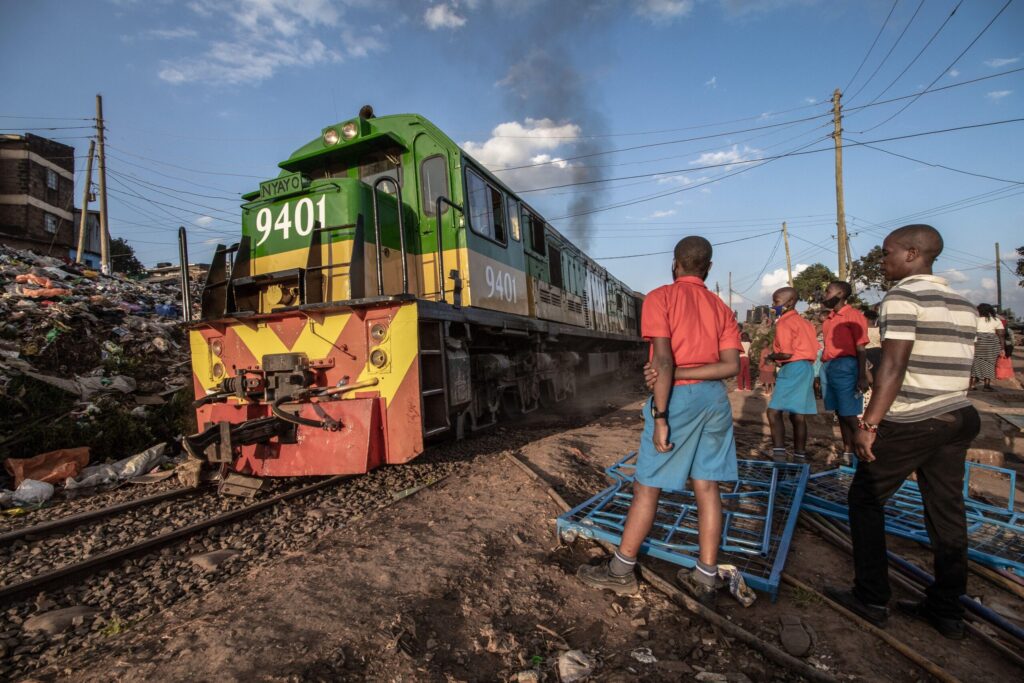Abu Dhabi’s Etihad Rail spent a busy May signing agreements with African governments to strengthen co-operation in the railway sector.
It marks a new departure for the UAE’s involvement in Sub-Saharan Africa which has previously mostly focused on ports, minerals, energy and agriculture.
Etihad signed memoranda of understanding (MoUs) with the governments of Uganda, Kenya, South Sudan and Chad. CEO Shadi Malak pledged to “explore opportunities that deliver lasting value, enhance regional connectivity and strengthen trade corridors, contributing to a more prosperous future for the region”.
Sub-Saharan Africa is in dire need of investment in its dilapidated railways. The infrastructure was largely inherited from colonial governments, built to serve extractive interests, with isolated lines connecting ports with inland mines and other production centres.
Following independence, the maintenance of railways and rolling stock was neglected and today most lines operate at painfully slow speeds due to safety concerns.
Other long-standing challenges in Africa’s rail sector include fragmentation with different gauges employed across the continent, limited electrification, low usage and lack of density. Africa has on average just 3.3 kilometres of railway per thousand square kilometres compared to 44.6 kilometres in Europe.
At present, just 1 percent of passenger journeys in Africa are carried out by rail, compared with 18 percent in Europe, and only 2 percent of freight is transported via railways.
It has been estimated that between $65 billion and $105 billion of investment is needed annually to modernise and expand Africa’s 83,371 kilometres of railways.
To support infra-Africa trade, the Africa Union has set out a vision for a continental-wide rail network spanning 330,387 kilometres by 2074, which it says will require $3.4 trillion of investment.
There is opportunity aplenty for the UAE and Etihad Rail to get on board.
China’s shifting role
In recent decades, China has been the leading investor in Africa’s railways thanks to its Belt and Road Initiative, and many African governments are now heavily indebted to Beijing as a result.
One of the most high-profile projects was the Mombasa-Malaba standard gauge railway (SGR) in Kenya. This involved building an entirely new line parallel to its antiquated metre gauge railway which dates back to the 1890s and runs at speeds of just 20-35 kilometres an hour.
The first sections of the SGR, worth nearly $5 billion, were funded through concessional loans from the Export-Import Bank of China and completed between 2017 and 2019. But subsequent sections, including a vital link to landlocked Uganda, were put on hold after Beijing decided to ease back on lending.
Following years of prevarication, China also decided against funding Uganda’s SGR from Kampala to Malaba in the east of the country.
UAE emerges as SGR lifeline
The UAE is now being courted as a potential financing partner to complete Kenya’s SGR, which stops about 400 kilometres short of the border with Uganda. In January this year, during a visit to Abu Dhabi, Kenya’s President William Ruto announced on social media platform X that he was exploring a partnership agreement with the UAE to complete the railway, which is planned to continue on to South Sudan from Uganda.
Etihad Rail is the developer and operator of the UAE’s 900km national rail network. Since its establishment in 2009, it has driven the greenfield construction of an integrated system with full freight operations successfully commencing in 2023 and passenger services expected next year.
It is interesting to note that the MoUs inked with African ministers in May emphasise technical co-operation and knowledge exchange in place of any mention of financing – which tends to be their primary concern. But there is much that can be learned from the UAE’s experiences.
One of the takeaways is that Etihad Rail dedicated considerable time and effort to secure multi-year partnership agreements with manufacturers and logistics companies to use its freight services long before the network was completed.
For example, in 2021, a deal was signed with Western Bainoona Group to transport 4.5 million tonnes of aggregates a year from Fujairah to industrial zones in Dubai and Abu Dhabi using 643 trains. Etihad signed a similar agreement with Ras Al Khaimah quarrier Stevin Rock for 3.5 million tonnes of construction materials to be carried to Abu Dhabi through 500 annual train trips.
From the outset, the design of the UAE rail network also incorporated intermodal infrastructure.
By contrast, Kenya’s new railway has suffered from lower-than-expected usage for both passenger and freight services which is making it difficult to service the loans used to build it, forcing the government to raise prices and terminate the SGR’s third-party operating contract. The missing connection to Uganda and poor intermodal links have also being blamed for the railway’s underperformance.
Securing freight commitments and building solid business cases for the railways ahead of time as Etihad Rail did would make it easier for African nations to lock in funding while also gaining a deeper insight into the specific requirements of future end users.
Liz Bains is a business journalist covering Africa and the Middle East
Latest headlines from the Middle East conflict
For more news and analysis, see our Iran-Israel coverage



